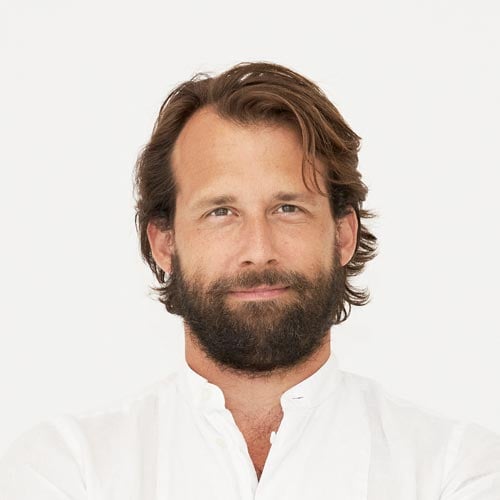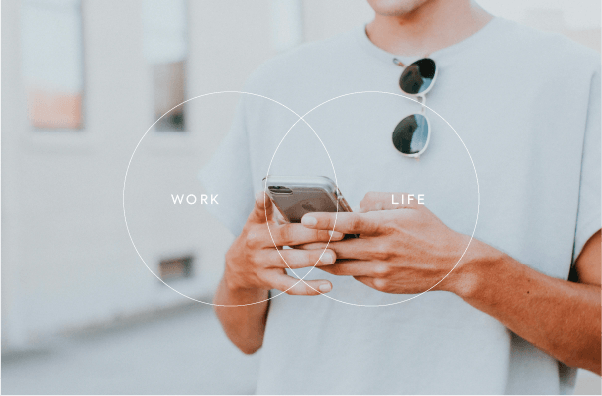Table of contents
Technology is leading a generational mindset change about how we compartmentalize our lives. Mews founder, Richard Valtr, considers the implication for hospitality.
For my parents’ generation, just like countless generations before, life revolved heavily around routine. It was as though they lived in a series of numbered boxes, each separate from the other. You could only be in one box at a time – you were either in your work box, or your leisure box – and you could only open them in the universally accepted order. On both a macro and a micro scale, the substance of one’s life was compartmentalized into these rigid segments of time and space.
These boxes weren’t the same size. Work was disproportionately bigger than leisure, often filled with manual, repetitive tasks that allowed little to no room for creativity or challenge. Work was a means to an end, the end being ten precious days of relaxation in a hotel somewhere – anywhere.
Why do we wait until our holidays to live like we want?
You can think of holidaying as a sort of ten-day super ego. It's effectively the state of mind that we enter when we’re on holiday, the only time that we can truly live the life we want, without the stresses of work or the drudgery of routine. It’s almost like flicking a switch or stepping into another box – we can relax, reset, and be inspired by new surroundings and experiences.
Time for the caveat: this is still the reality for many of us today. Yes, improvements in workers' rights and income mean that we now get more holiday, and there are more places open to us than ever before. But even so, routine still binds us. The pandemic has heightened the sense of rinse and repeat working weeks and weekends, the days blurring into each other without the promise of a tangible, imminent reward.
Holidays are a gift that we appreciate now more than ever. You can get a temporary high from going to the theatre or watching your favorite team (or at least, you could in normal times, or if you don’t support The Arsenal like me) but it doesn’t compare to that sustained elevation of a few days on holiday in a place you’ve long wanted to go to. It’s why so many people still meticulously plan holidays. They’re almost sacred. Look through someone’s family photo album and most of the pictures in there will be holiday photos.
But with the pervasion of technology in day-to-day life, the reality of the ten-day super ego is changing.
Overworking doesn’t equal productivity
A century ago, it wasn’t unusual for people to have a 100-hour working week. Enter Henry Ford, who helped to reduce working hours and introduced the concept of the weekend to the mainstream workforce in 1926. He realized that he needed his workers to have time to relax and, most importantly, purchase and use the products he was manufacturing.
"It is high time to rid ourselves of the notion that leisure for workmen is either 'lost time' or a class privilege," he said. Yet almost a hundred years later, the cult of overworking still exists. Most of us have worked in an office where there’s a stigma to leaving on time. Nobody wants to be the first to switch off their laptop. The reality is, this kind of environment isn’t conducive to productivity, and there are negative long-term effects to staying late.
But the nature of work is changing. Technology and automation are driving a higher, more engaged form of working. They free us from some of the more mundane tasks and let us focus on the more enjoyable, creative elements of a role. Broadly speaking, this transformation is taking place across all industries, from hospitality to manufacturing. The upshot is that fewer people think of their job as a kind of prison that they’re trapped in – not only is the work more stimulating, but it’s much more colorful than before.
Connectivity enables blended living
Compare a typical meeting from twenty years ago to a meeting at Mews today. Twenty years ago, if you’re not in the specific place at the specific time, you can’t be a part of the conversation. Everyone has to be in the room where it happens. Now, at Mews, we’re mostly working remotely in different parts of the world. Our team can join a meeting from anywhere, and even if they miss it, the recording is shared afterwards. Everyone can contribute and offer ideas, even if it’s not in the same moment, and that means greater transparency and greater diversity of opinion.
As tech innovators, it’s our responsibility to give talented people the means to be creative and do their best work. In a typical day, we’re doing so much multi-processing that it’s hard to find room for real innovation. Every leader should really ask themselves: “What’s the environment that’s going to make my team feel the most relaxed and happy?” That’s the place that’s going to allow people to do their best work.
This newfound freedom, born from connectivity, means the gradual dissolving of the five-day workweek but more importantly, of the ten-day super ego. Because the opportunity for a more varied, improved work/life balance now exists, there’s less pressure on the time spent on holiday. Technology is tearing down the barriers that used to contain the separate fragments of our lives. For instance, social media is effectively the modern-day photo album: scroll through someone’s Facebook or Instagram or TikTok and you’ll find holiday photos no longer dominate. People are connected at all times, and blended living is becoming our default setting.
What does this mean for hospitality?
For the hospitality sector, there are multiple opportunities to be had from blended living. On one level, this means providing guests with additional services and experiences, and new ways of curating them and fostering them. Guests no longer only stay at a hotel just for the room, but for facilities and for those they are likely to meet – whether they work there or are also visiting. Hotels must adapt to multi-purpose stays.
Think of a business guest who’s on his own for three nights for a series of meetings but then extends his stay for the weekend for his family to join him. Or a team that needs to understand their customers in a new market they’re moving into, so they relocate there for a few months as they research and iterate their product.
What is the experience like for this guest? Are they treated the same for the entirety of their stay, as if stuck in a single box? Or does the hotel use the data and the technology available to them to provide a remarkable experience based on the guest’s changing circumstances? Hotels should be trying to expand their reach into guests’ lives, not to interfere or overwhelm, but to extend true hospitality.
As we embrace technology and blended living, there are fewer barriers to constrain us. This is true not only in the physical world, but also in the world of ideas. The more we break free from our boxes, the more we’re able to innovate. Just as Henry Ford revolutionized the workplace a century ago, I believe that now, more than ever, we have the tools and the mindset to drive our own transformations, across hospitality and beyond.

2026 Hospitality Industry Outlook
Download now
Table of contents
Hospitality hot takes straight to your inbox



.webp)